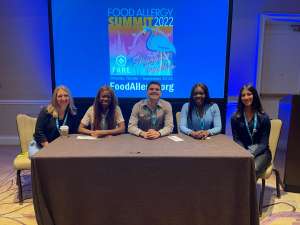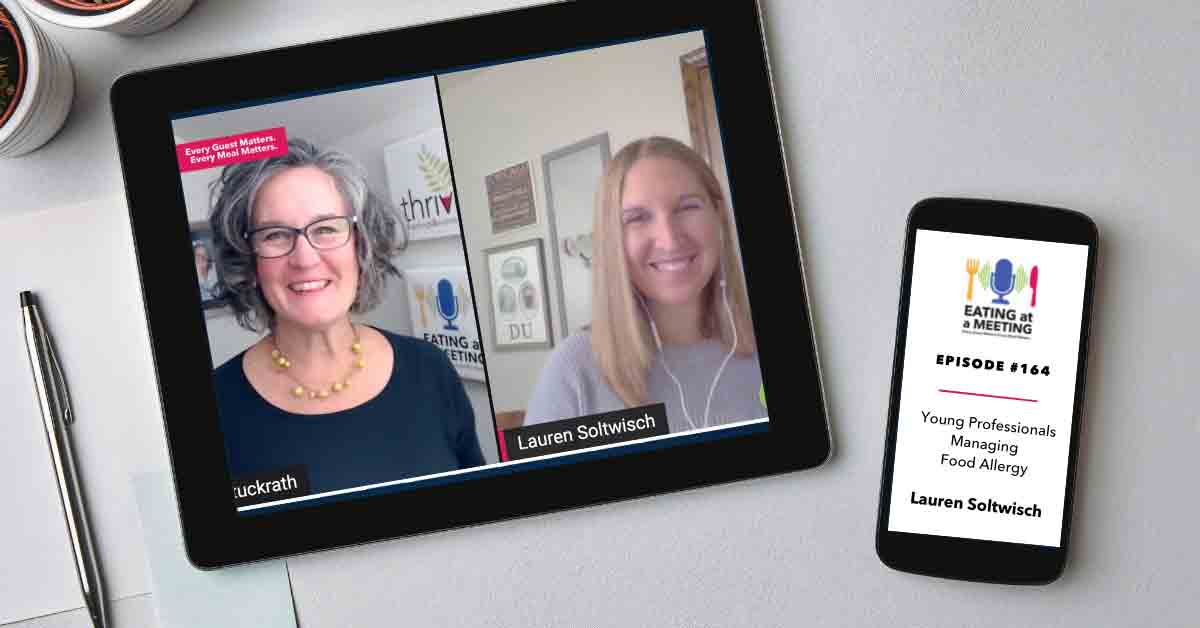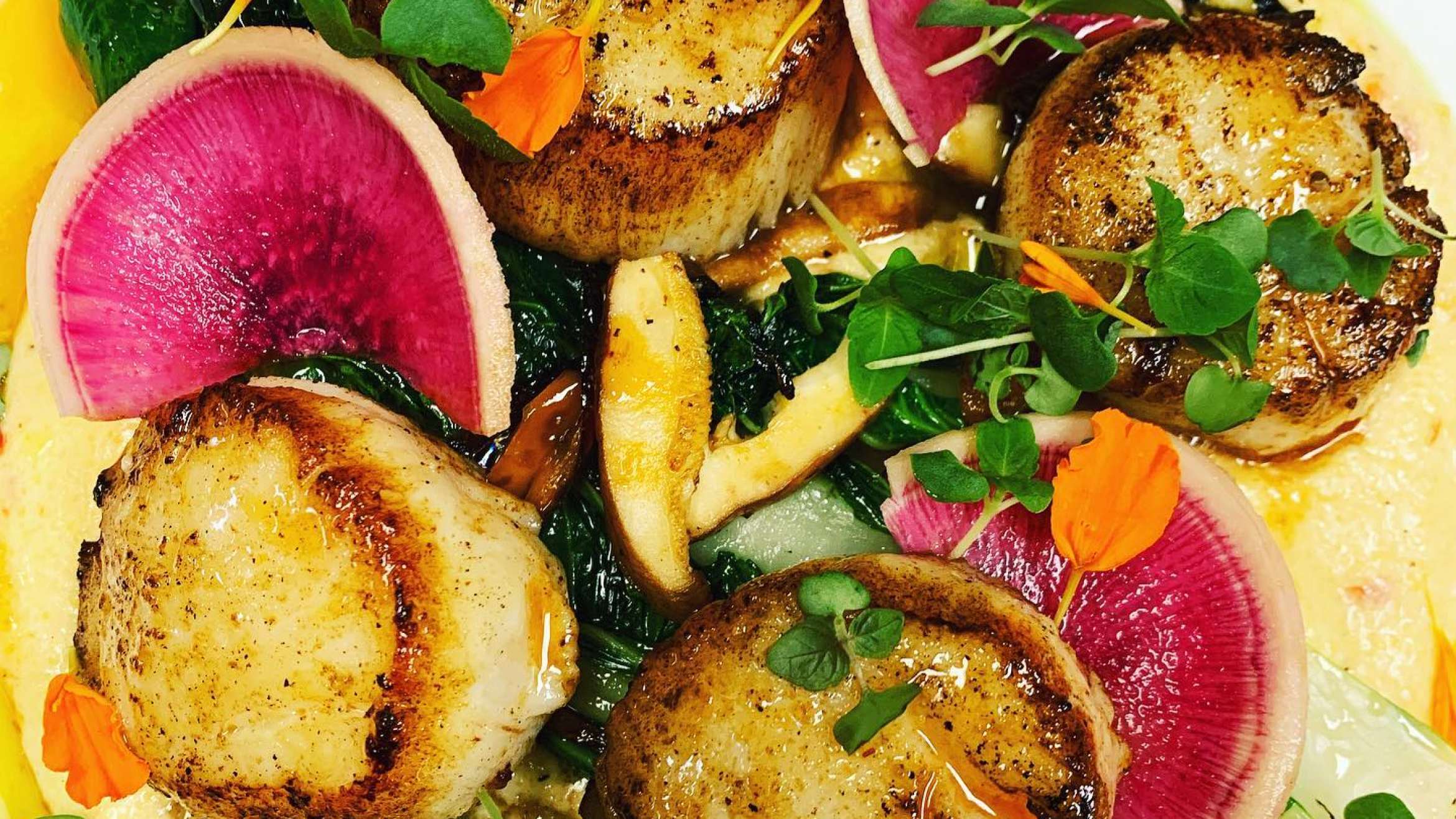Young Professionals Managing Food Allergy
Eating at a Meeting Podcast Episode #164
 October is National Disabilities Employment Awareness Month
October is National Disabilities Employment Awareness Month
At the 2022 FARE Food Allergy Summit, I sat in on a session where five young professionals talked about their challenges and suggestions on how to bring their whole selves to work, including their food allergies. Lauren Soltwisch was one of those young professionals.
To bring more awareness to how food allergies (and other medically-necessary dietary needs) are disabilities that impact productivity, engagement, and inclusion in the workplace, I’m chatting with Lauren, who has multiple food allergies about the ins and outs of managing food allergy in her careers, social life, and everything in between.
Lauren Soltwisch
Lauren has been deathly allergic to milk and tree nuts her entire life. Her day job is social media marketing in financial services, but in her spare time, she advocates for the food allergy community through her book, Crying Over Spilled Milk, and through her work on FARE’s Rising Leaders Committee.
What do safe, sustainable, and inclusive food and beverage experiences look like to you?
Because my food allergies are so severe, cross-contamination is a key point for me. I rarely, if ever, eat out. In college, I tried to eat at many restaurants; sometimes I was fine, other times I needed my EpiPen–even after the chef personally guaranteed to me that the dish was milk- and nut-free and they cleaned all cooking surfaces.
Do you have an example of a situation that negatively affected you and/or other individuals or groups’ food and beverage experience?
I played volleyball in college and the team went out for dinner while we were at a tournament in another state. I didn’t want to eat but my coach and teammates wanted me to feel included, so they asked to speak with the chef and we reviewed possible plates I could have. We landed on a plain pasta dish with only olive oil, tomatoes, and spinach. I took a few small bites at first, as is my common practice to keep an eye out for any reactions, and was able to finish the bowl. When we got into the van back to the hotel, I started itching everywhere and getting sick. They insisted I sleep in a bed on my own, which meant my teammate had to sleep on the couch, and I was unable to play the next day a the tournament.
What is a best practice you use/or have seen to create safe, sustainable, and inclusive F&B experiences?
My default is to avoid my allergens at all costs, but in the past several years I’ve had some success with vegan meals at weddings (though I don’t have a perfect track record). I really only feel “safe” if it’s a dedicated food allergy-friendly meal event, like the lunch hosted at FARE’s Summit which was free of the top 9 allergens and all the cooking utensils and surfaces were guaranteed to be free from the top 9 allergens.
What do you wish people knew about what you do?
I simply want people to be understanding. I wish people knew that I’m never trying to be rude or standoffish and I’m not coming from a place of over-precautious. I genuinely would rather sit and socialize with a drink than risk having a reaction and ruining the evening.
Just for fun…What are your favorite food and drink?
Favorite food: pasta
Favorite drink: Coca-Cola
Links:
Connect with Lauren: Website | Facebook | Instagram | LinkedIn
Check out other featured guests on the Eating at a Meeting podcast
Eating at a Meeting is part of the Nitty Grits Podcast Network.



